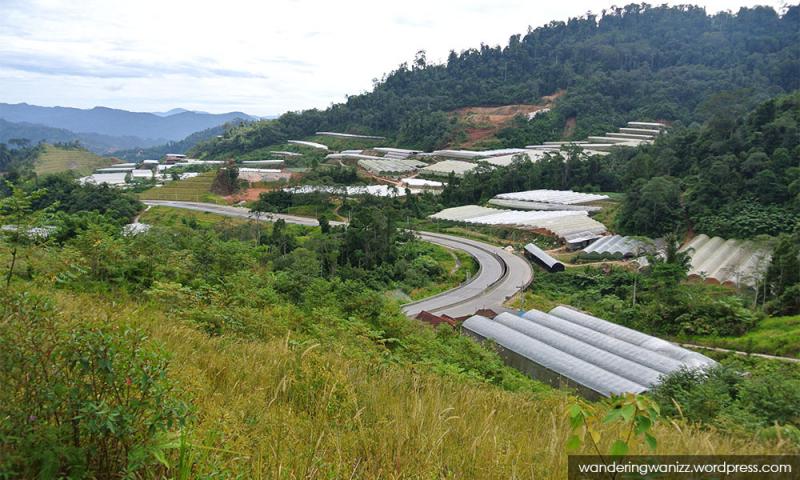LETTER | Pahang agricultural land policy - Cameron Highlands' small farmers hit hard
sLETTER | The Pahang state government has officially launched a new land policy for Cameron Highlands by establishing Pahang Corporation Sdn Bhd that issues agreement letters of an agricultural lease to 1,018 farmers who were previously given Temporary Operating Licenses (TOLs). The agreement covers a total land size of 5,526,219 hectares.
From June 16 to June 19, 2020, the Cameron Highlands District and Land Office invited the first batch of 380 farmers to brief them on the Cameron Highlands agricultural land lease. Feelings of helplessness and disappointment were largely felt by farmers who attended the briefing as many unreasonable terms in the Cameron Highlands agricultural land lease were not reviewed at all.
From the very beginning when the Pahang government started drafting Cameron Highlands agricultural land lease until the briefings were held, we'd utilised various channels including the state legislative assembly to speak for the farmers. Among all, a joint memorandum that incorporated concrete and practical suggestions to review the terms of the agricultural land lease was signed by every Pahang Pakatan Harapan state assemblypersons in order to urge the state government to be concerned about the predicament of Cameron Highlands’ agriculture as well as the challenges and negative repercussions that will be brought about by introducing the new land lease.
Unfortunately, the state government did not revise any of the terms stipulated in the land lease. Among all, the decision to collect an extremely high annual rent of RM4,500 per acre from the farmers remains. By comparing the annual rent with the previous TOL fees and water bills that cost only RM884, the increment will be shockingly close to 500 percent!
Apart from that, the state government did not extend the three-year lease term, hence land security is still absent and farmers will be reluctant to invest sufficient amounts of time and money into agricultural upgrading and sustainable farming.
State government officers had allegedly borrowed the agricultural land lease model from Lojing Highlands that is located near Cameron Highlands as an example to show that farmers are able to afford expensive rent, this in the hope of rationalising Pahang Corp’s decision to collect expensive agricultural rent in Cameron Highlands.
However, most farmers in Lojing Highlands can rent agricultural land for more than 10 acres, thus are able to engage in large-scale production to make profits and continue farming while bearing the heavy burden of high costs. Besides that, the lease term given to the majority of farmers in Lojing Highlands is often more than 10 years, making it conducive and safer for farmers to invest time and capital to move towards agricultural modernisation and upgrading.
On the other hand, the size of agricultural land in Cameron Highlands is far smaller, with a lot of agricultural land ranging from only one to two acres in size. It is therefore foreseeable that small farmers can hardly bear the increasingly heavy financial burden due to the exorbitant rent introduced by the state government when other costs such as seeds, fertilisers, pesticides and labour are also climbing.
The new agricultural land lease drafted and introduced by the state government also did not take into account the predicament of Cameron Highlands’ agricultural sector, particularly the imminent disastrous challenges that will be faced by small farmers. The state government’s decision is like killing the goose that lays the golden egg as small farmers who used to be self-sufficient will have no choice but to stop farming due to skyrocketing costs.
Small farms might eventually disappear as a result, thus creating a severe socio-economical impact on Cameron Highlands. Ultimately, the entire agricultural sector in Cameron Highlands that was once world-renowned, as well as the country’s food supply, would be severely affected.
Apart from that, as Malaysia has implemented the movement control order (MCO) in order to combat Covid-19, many economic sectors have suffered from huge losses, including the agricultural sector in Cameron Highlands. The state government should support and develop the agricultural sector by relaxing its land policy rather than targeting farmers who have suffered a lot during the crisis.
Therefore, I would like to urged the Pahang state government to review the rent and terms of the Cameron Highlands’ agricultural land lease in order to reduce the burden of farmers, to endure the economic hardship caused by the pandemic with farmers together and to support the Cameron Highlands’ agricultural sector towards agricultural transformation and upgrading to ensure sufficient food supply and safeguard our national food security.
The writer is Tanah Rata state assemblyperson and DAP Youth deputy chairperson.
The views expressed here are those of the author/contributor and do not necessarily represent the views of Malaysiakini.
RM12.50 / month
- Unlimited access to award-winning journalism
- Comment and share your opinions on all our articles
- Gift interesting stories to your friends
- Tax deductable
